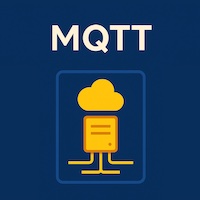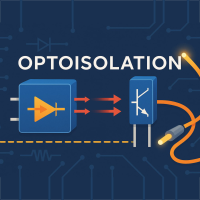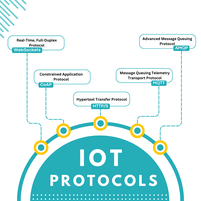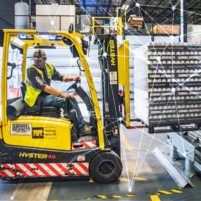Top 10 Smart Cities in the world

Digital solutions may be used to optimize the utilization of traditional networks and services in a "smart city," according to the word's definition. As a consequence, the goal of smart cities is to improve the quality of life for city residents, increase the city's sustainability, and benefit local businesses. In the eyes of the European Commission, a smart city is one in which "Beyond the use of digital technology, a "smart city" strives to improve resource efficiency and reduce emissions. These include more sophisticated transportation networks, improved water and waste disposal facilities, and new technologies for lighting and heating buildings that are more efficient and less expensive. Also included in this definition are a more active and responsive local government, safer public spaces, and modifications to meet the needs of an aging populace." Information and communication technology (ICT) advances have made it feasible to gather real-time data. As a result, demand fluctuations may be recognized and responded to in a timely and cost-effectively.
Are there advantages to having cities that are smart?
It's predicted that by 2050, the world's population will be concentrated in a handful of major urban areas, accounting for 68% of the world's total population. Cities are growing at an ever-increasing rate, and more and more people are opting to live in metropolitan areas. Municipal governments, urban planners, and city managers face various challenges due to this. To achieve a good quality of life, a variety of social, environmental, and economic barriers must be overcome. 'Smart city technologies, which connect people, technology, and cities in a resource-saving and intelligent way, may help efficiently address some of these challenges due to the rapid development of new technology.
The world's top ten most technologically sophisticated cities.
Singapore
Singapore has been ranked as the world's most intellectual city. Singapore's status as a "city of the future" is based on various criteria. It has been here since 2020, when it was designated as the site of the region's first industry-led intelligent city lab. Smart city technology is being developed in collaboration with more than 30 companies, including Amazon Web Services, Cisco Systems, and Schneider Electric, at the Smart Urban Co-Invention Lab.
Helsinki
Finland's capital city, Helsinki, has risen to second place on the list of the world's most luminous cities. The mayor of Helsinki, Jan Vapaavuori, believes that Helsinki's open data policy is critical to the city's capacity to attract several pilot projects. For planning and construction projects in Helsinki, the city supplies an underground pipe system and a large amount of data analysis that adds to the city's waste management system. Helsinki has both of these characteristics.
Zurich
A significant focus of the Zurich smart strategy is on three important areas: future forms of integrated public transit, the digital city, and participation in a smart community. Because of this, a significant number of new ideas are implemented.
Auckland
When it comes to resolving challenging challenges that impact a whole city, Mayor Phil Goff of Auckland stresses the importance of the Auckland Council and its economic development agency promoting innovation. The city's unique projects, such as the following, have earned national and worldwide notice.
Both issue resolution and asset management can be monitored more effectively thanks to Auckland Hospital's Digital Twin technology.
Scan & Go is the name of the Covid 19 solution for safer shopping. Modern technology has resulted in less human contact with this software that allows consumers to scan, bag, and pay for groceries all from the comfort of their smartphones.
Oslo
Oslo has been named "European Green Capital" for the year 2019 by the European Commission. Various programs, including but not limited to the ones listed below, demonstrate how the city is working to improve its intelligence and efficiency:
For low- or zero-emission vehicles, the Oslo Toll Ring is an automated toll system that generates revenue that helps fund the city's many mobility programs.
Fifty new building and neighborhood development projects, together with private and governmental partners, will be established as part of a program that aims to fund construction projects that will reduce greenhouse gas emissions by 50 percent above existing norms.
Copenhagen
New businesses, particularly start-ups, may quickly meet the Copenhagen Accord on Climate Change obligations via the use of an online platform.
Because of its growing population, the city of Copenhagen is working hard to become a greener, healthier, and more technologically sophisticated place to live. The Solutions lab in Copenhagen is now evaluating a significant variety of data-driven smart-city IT solutions to ensure that the needs of the City of Copenhagen are met. Additionally to this, Copenhagen provides open data sources, enabling the creation of new technologies like the city's technology solution for forecasting vacant parking spaces using historical data, real-time data, algorithms, and machine learning.
Geneva
The Canton of Geneva launched the Smart Geneva initiative under the slogan "Transforming territory, for and with its inhabitants." When we say "change this place in partnership with its people," we mean "transform the area." Geneva's smart parking system, which uses sensors to notify drivers through their smartphones, is another source of pride. The amount of time we spend stuck in traffic might be cut in half thanks to this new technology. In addition, flexible lighting, more ecologically efficient recycling, and improved public safety are all available in Geneva.
City of Taipei
There is a strong emphasis on the usage of sensors in Taiwan's urban areas as a means of collecting data. The city of Taipei offers a wide range of services aimed at improving the quality of life for its citizens.
Amsterdam
For several reasons, Amsterdam is considered one of Europe's most recognized cities. A few of these factors include the city's universities, tourist attractions, and a large number of bicycles, among other things. An example of an innovative city program is the Amsterdam Smart City Initiative, which uses data from insurance companies to identify areas with a high proportion of people with depression who are not receiving enough treatment. to the exclusion of all other possibilities
New York City
NYC has developed regulations to preserve resources like power and water, reduce the city's impact on its surroundings, and eventually make New York City a more attractive place to call home. "
Conclusion
Cities throughout the globe are working hard to enhance the quality of life for their residents while simultaneously reducing their impact on the environment, and this is becoming more apparent. While technological improvements and developments in technology have been the main priority of many cities over the many previous years, an innovation that is focused on the citizen is currently the primary focus of innovation for smart cities. Through the use of communication participation technology, cities and governments can better communicate with their citizens, spur innovation, and identify problem areas. These advantages all contribute to the building of the cities of the future.
Explore more
Need any help in IoT?
Need any help in IoT? An Atreyo expert identify the right solution for your needs.
If ready to talk to an Atreyo expert
Interested in IoT products? go to







